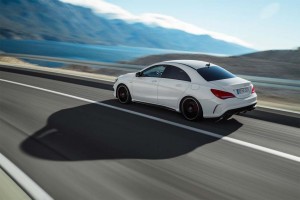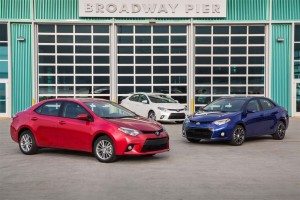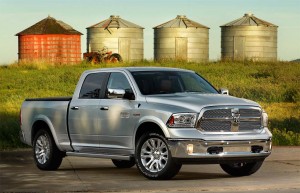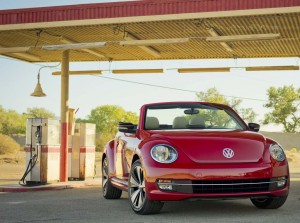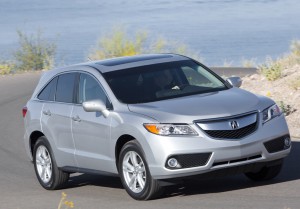Mercedes-Benz took away the luxury vehicle sales crown from archrival BMW as carmakers closed the books on a successful 2013 that sets the stage for a continuing rebound.
With the U.S. auto industry recording its best year since before the start of the Great Recession, a number of automakers had reason to celebrate. Honda, Nissan, Audi and Subaru were among those reporting all-time record sales, while General Motors retained its position as the nation’s largest automaker.
But Toyota finished 2013 with bragging rights for not only having the best-selling passenger car in the country, but also having the industry’s highest retail sales. And Ford’s F-150 retained its crown as not only the best-selling truck, but also the best-selling vehicle overall.
But one of the hardest-fought battles in the industry pitted Mercedes against BMW, the Bavarian maker narrowly winning the luxury sales fight in 2012. This time, it was Mercedes that had the chance to crow, a last-minutes sales spurt allowing it to close the books on 2013 with record U.S. sales of 312,534 cars, trucks and crossovers, a 14% year-over-year increase.
Despite its own 11th-hour push, BMW sales for December came in a grand total of 10 units short of the 37,399 vehicles it sold during December 2012, and so, while the company smashed its own annual sales record – with a 9.9% increase for the full year, at 309,280 vehicles – it had to settle for second place.
Lexus, which held the luxury sales crown for nearly a decade, was a distant third despite its own 12% increase in sales, while Cadillac came in fourth – though the General Motors division’s 22% sales gain made it 2013’s fastest-growing luxury auto brand.
Some analysts questioned whether December might have yielded even bigger gains for the industry overall were it not for a series of harsh storms that hammered major portions of the country. Even then, total sales for the month were up 3.8% – helping the industry to reach collective sales of around 15.5 million, its best performance in six years.
There were some sour notes, Toyota, General Motors and Volkswagen going into the negative category during the final month of the year. VW also lost ground for 2013 overall, though the maker was quick to point out that it topped 400,000 sales for the second consecutive year. That hadn’t happened in four decades.
“There was some bad winter weather…that probably hampered things slightly,” Erich Merkle, U.S. sales analyst for Dearborn, Michigan-based Ford, told analysts and reporters during a conference call.
The fact that the industry retained momentum in December supports projections by analysts and industry planners forecasting that 2014 will be another good year. But how much more growth is left in the market remains a matter of debate, sales projections for the year range from IHS Automotive’s conservative 16.1 million to as much as 16.5 million or more.
“The auto industry was a consistent bright spot in the economic recovery throughout 2013,” said Bill Fay, Toyota division group vice president and general manager, focusing on the maker’s broader gains. “We expect the economy will continue to gain strength in 2014, with car sales rising to pre-recession levels.”
Whether, in fact, the industry will reach the 17-million record set a decade ago during the current economic cycle remains to be seen, but after a brief scare last autumn, there are few signs that the car market’s momentum is slowing down. Automakers say a combination of an improving economy and job market, stable fuel prices, attractive new products and low interest rates combined to boost sales last year and are setting the table for future gains in 2014.
For December, Chrysler Group LLC reported U.S. sales increased 6%, giving the company 45 consecutive months of growth. Meanwhile, Ford reported a modest increase of 2% in December, while General Motors saw its sales fall 6% last month.
However, Audi, Jaguar, Nissan and Hyundai all reported double-digit sales increases for the final month of 2013, in part driven by aggressive marketing campaigns backed by lucrative deals.
“The combination of a strong luxury market and a dramatic increase in consumer interest in both of our brands has led Jaguar Land Rover’s U.S. business to outpace the general market with a 20% full year increase,” said Joe Eberhardt, the newly appointed president of Jaguar Land Rover North America.
There were a number of surprises in 2013 that helped fuel the strong sales growth. Among the most notable was a resurgent full-size pickup truck market buoyed by a nascent housing recovery. Detroit makers have continued to dominate the segment, none more so than Ford which again saw its big F-Series land as not only the top-selling truck but also the best-selling vehicle overall in the American market.
For the year, that helped Ford score an overall sales increase of 10.8%. But another factor that worked in the maker’s favor, noted sales and marketing chief John Felice, was a modest increase in demand for domestic products in traditionally import-dominated coastal regions like California.
Full-year Chrysler Group sales were up 9% in 2013, compared with sales during 2012, marking the fourth-consecutive year of Chrysler Group sales growth. This will mark the last year the maker will report sales as an independent company. Following a New Year’s Day deal, it will be completely acquired by Italian alliance partner Fiat no later than Jan. 20.
(Fiat-Chrysler deal raises many questions. For more, Click Here.)
Despite its December slide, GM sales rose 7% for all of 2013 and incoming CEO Mary Barra will have the advantage of having about a half-point higher market share than a year ago, a critical goal of her predecessor Dan Akerson.
“2013 was the year that GM and the auto industry put the last traces of the recession in the rearview mirror, so now we can devote our full attention to the things that matter most to customers: compelling design, world-class quality and delivering the best ownership experience in the business,” said Kurt McNeil, vice president, U.S. sales operations.
(Where will the new Fiat-Chrysler headquarters be? To find out, Click Here.)
Among the makers to set records last year was Nissan Motor Co., whose Nissan and Infiniti brands gained a collective 9.4% in December, and 10.5% for all of 2013.
American Honda Motor Co reported an increase of 7.2% for the year, the second-best result in company history. Its long-struggling Acura Division posted year-to-date sales of 165,436, a 5.9% gain and the best results since 2007, the company reported.
Audi was another record-setter, a 13.5% increase helping it top its previous high for the fourth consecutive year. But its sibling Volkswagen brand didn’t fare nearly as well. Though the German brand did again top the 400,000 mark – the first time it’s done so in two consecutive years for four decades – VW struggled and lost significant momentum in the final months of 2013, ending the year with an overall 6.9% decline.
(Click Here to see what 2014 holds for automakers.)
While consumers rushed back to showrooms this past year, they were faced with steadily increasing sticker prices – in part reflecting the increased content in vehicles as consumers opted for more options – but also a sign of a return to more of a seller’s market as factories strained to meet demand.
On the positive side, makers flooded the market with lavish sales in the final month of the year, so the estimated average transaction price for light vehicles in December increased by less than 1% or $197, to $32,890, according to Kelley Blue Book.
Also working in the favor of buyers: a rapid increase in the availability of loans to even credit-challenged buyers. And with current interest rates still low, monthly payments didn’t necessarily reflect the rise in vehicle MSRPs.
“We are optimistic heading in to 2014,” said Audi of America CEO Scott Keogh. “We are certainly projecting another record year.”
(Paul A. Eisenstein contributed to this report.)

